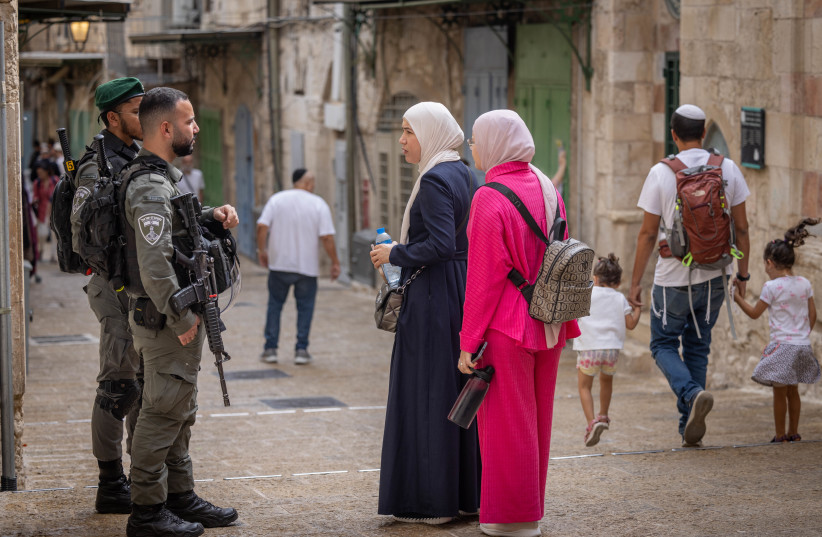A survey of Israel’s Arab minority, conducted by the Israel Democracy Institute (IDI), found that a slight majority (56% overall) of Arab Israelis say that the Hamas attack on October 7 does not reflect Arab society and Islamic values, and that a significant majority (86.5%) support civilian efforts during the war, such as aiding evacuees or assisting the medical system.
The poll was conducted by the Israel Democracy Institute, with a sample size of 538, interviewed by phone in Arabic. The margin of error was 4.31%.
The question of October 7 was presented in reference to a statement by MK Mansour Abbas, who said that Hamas’s actions in the attack “do not reflect Arab society, the Palestinian people and the Islamic nation.” A significant majority of Druze (69.5%) and Christian (68%) respondents agreed with this statement, and a slight majority of Muslims (53%) agreed as well.
A large majority of respondents (84%) reported fearing for their physical safety in the tense environment in Israel following the outbreak of the war. Asked about specific relationships, however, most respondents (about 74%) said that they have Jewish friends, and most (78%) of these people said that those relationships were unaffected by the war.
A large majority of Arab Israelis, across religious groups, said they felt a part of the State of Israel, including its problems. 80% of Druze respondents indicated this, as did 73% of Christians and 62% of Muslims. These results varied with age, the oldest respondents being more likely to answer in the affirmative, across groups.

Less educated feel more connected to the state
Interestingly, the feeling of being a part of the state was stronger among those without higher education, with 75% of those without a high school diploma saying they feel a part of the state, than among those with a post-high school degree, with only 54.5% of those with a college degree reporting that feeling.
The survey also asked respondents whom they held responsible for the deaths of Palestinian civilians in Gaza. Most respondents (58%) said that the IDF and Hamas were both responsible. 14% blamed the State of Israel and the IDF exclusively, and 16% blamed Hamas exclusively. Those who voted for Zionist parties in the last elections and those who have a higher than average income were more likely to hold Hamas responsible, while most low-income and average-income earners tended to cast blame on both Hamas and the IDF.
The IDI said that “the findings of the survey outline a complex mood prevailing in Arab society” and that differences in public opinion are “often more geographical than political.” The group also cautioned that “this survey was conducted during a sensitive period, in which a change in the social behavior of the Arab public in Israel was observed, and it will be important to re-examine the same questions, at different points over time.”
